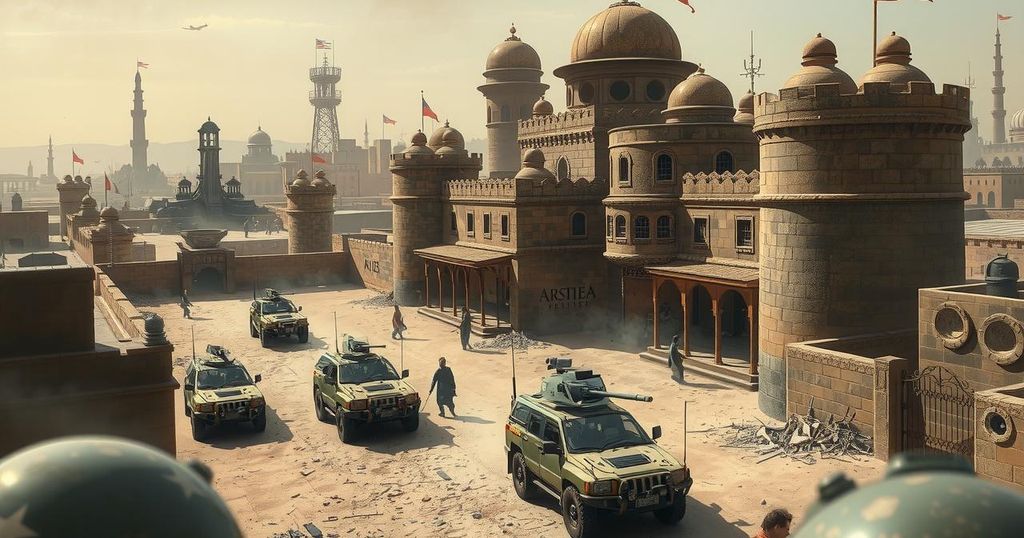Khartoum Changes Hands: A New Phase in Sudan’s Civil War
The Sudanese Armed Forces have regained control of Khartoum from the Rapid Support Forces, marking a significant change in the civil war. General Abdel Fattah al-Burhan has returned to the city, declaring it “free.” The outcome could impact military strategies in Darfur and reflects broader geopolitical tensions.
The ongoing civil war in Sudan has reached a pivotal moment as control of Khartoum has shifted from the Rapid Support Forces (RSF) to the Sudanese Armed Forces (SAF). On March 15th, RSF leader Muhammad Hamdan Dagalo urged his troops to persist, but they eventually retreated, leading to the fall of key locations within a few days. The SAF regained control of critical infrastructures, including the presidential palace, the central bank, and the international airport.
This transition marks a significant change in leadership dynamics, with General Abdel Fattah al-Burhan, the army chief and de facto president since the 2019 coup, re-entering Khartoum for the first time in two years. He was received by celebrating troops, proudly declaring Khartoum to be “free” from RSF control. As regional dynamics shift, the SAF may consider military actions in the Darfur region, potentially escalating the conflict further.
Meanwhile, the global landscape is witnessing other significant developments, including the impacts of the war in Gaza, political crises in Nigeria, and broader discussions on international aid amidst budget cuts. These topics highlight pressing issues alongside the recent upheaval within Sudan.
The shift in control of Khartoum signifies a crucial turning point in Sudan’s civil war, with the SAF now dominating the capital following the retreat of the RSF. General Abdel Fattah al-Burhan’s return symbolizes a reinforcement of military authority in Sudan. As the situation evolves, regional stability remains a concern, particularly with implications for neighboring areas like Darfur. The intersection of these conflicts illustrates the complexities affecting not only Sudan but also the wider geopolitical context.
Original Source: www.economist.com




Post Comment